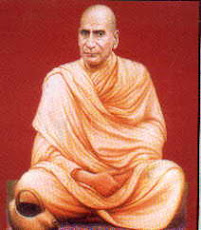AUM
Plea for pardonibg sanjay dutt frivolous
By
Brigadier Chitranjan Sawant,VSM
The Supreme Court of
India in its recent judgement found film star Sanjay Dutt guilty of possessing
automatic
weapons of prohibited
bore without a valid license and sentenced him to five years imprisonment. It
also transpired that the weapons had been delivered to him by notorious
gangsters behind Mumbai blasts of 1993. Indeed, it was a tragedy that had
claimed 257 lives and 713 persons were injured and maimed.
There was unimpeachable
evidence of violation of the Arms Act and under TADA the Court had no option
but to impose the minimum sentence of five years imprisonment. Indeed the
convicted man,Sanjay
Dutt had already spent 18
months in prison during pendency of the case and was entitled to a remission of
that period. Thus, now the fact of spending three-and-a-half-years in prison stared
him in the face.
Related
Articles
In
Focus
Here
come his friends and sympathizers opening a campaign asking the government to
grant him pardon. It has led to a debate in the society whether it is a fit
case for pardon or is just propaganda for the cause of terrorism, if it could
be called a cause.
Why
did the matter suddenly spring up and made headlines in the national dailies.
The electronic media was not to be left behind. Times Now, an English news
channel, stole the limelight by fielding Justice Markandey Katju, Press Counicl
Chairman and a retired judge of the Supreme Court of India , Mahesh Jethmalani, an
eminent advocate of Mumbai and Delhi who were later joined by
Majid Memon, an advocate from Mumbai.
The
immediate provocation to hold a TV discussion with the channel editor, Arnab
Goswami as the anchor was a letter written by Justice Katju to the governor of
Maharashtra, K. Shankar Narayanan pleading for pardon for Sanjay Dutt because
he had committed the crime two decades ago and is now a reformed man doing
social service.
Senior
advocate Mahesh Jethmalani opined quite articulately that Justice Katju’s plea
of sympathy for Dutt, a convicted man now, was misplaced and misconstrued. He
brought out a legal point that the governor of a state had neither authority
nor legal powers to grant pardon to the convict who was sentenced to a prison
term for violation of provisions of the Arms Act by a TADA court.
Justice
Katju cited Article 161 of the Constitution of India under which the governor
enjoys constitutional powers that cannot be curbed or over ruled by other Acts
of legislatures and, therefore, he had petitioned the governor. I must
appreciate Jethmalani’s erudition and insight into the constitutional law that
he promptly cited Article 162 of the Constitution of India that the powers of a
governor to grant pardon are restricted by this over-riding Article applicable
to cases of violation of the Arms Act. Justice Katju was gracious enough to
concede the point to Jethmalani and said that now he would write to the
President of India making out a case for pardon for Dutt.
Let
us leave aside the legal aspects of the case and take up the social
repercussion as an offshoot of the grant of pardon or otherwise to the so
called “bad boy now turned a good boy”.
The
laws are enacted by legislatures for smooth governance of the society. The
prosecution brings criminals to courts of law with the assistance of police,
and judiciary decides on the question of conviction or acquittal, based on the
evidence on record. After the judicial process is over, the convict is given a
chance to appeal to the Head of the State for grant of pardon that is decided
on merit. The Head of the State takes many factors into consideration while making
up his mind whether the particular case deserves to be pardoned or not. What
social impact will the ultimate decision have? After all, it is the social
system that has to be protected. In a democratic society all citizens enjoy
Equality before Law. The age-old maxim goes thus: However high one may ever be,
the law is above him.
It
is clear that the law of the land treats one and all, be he an actor or a
labourer, as equals. Had there been an ordinary farmer or a labourer in place
of Dutt, will the legal system and the bigwigs therein go all out to make out a
case for pardon and present it to the Head of the State? If not, why should
there be a special treatment given to actor?
As
far as reviving Gandhigiri is concerned, the convict in question did his job as
an actor and was paid for it. Like a farmer reaps what he sows, an actor should
get a reward or a punishment for an act or omission and he does not deserve a
special treatment. There is no need to raise brouhaha and grant the convict
pardon.
Have
we gone to the bereaved families and ascertained their views? Many a family
lost its bread winner and now lives in penury. The loved ones became victims of
acts of terror and the 34-year-old man, Sanjay Dutt was no innocent kid then
that he knew not impact of his acts and omissions. It is on the Mumbai police’s
record that Sanjay Dutt was hob-nobbing with notorious terrorists, and was
indirectly instrumental in causing a trauma to fellow Mumbaikars. Does such a
man deserve pardon after his conviction by the Supreme Court of India?
Lastly,
has Dutt expressed regrets for his role in the serial bomb blasts? No, none of
the terrorist gangs expressed remorse about their role in that sordid act. If
they are not sorry for whatever role they played in executing their devilish
designs, why should some social activists fall head over heels to seek pardon
for the convicts? Frankly speaking, there is no cause that merits attention of
social and political workers. Let the case rest where it is now.
Read more at:http://www.merinews.com/article/plea-for-pardoning-sanjay-dutt-misconstrued/15883316.shtml&cp








